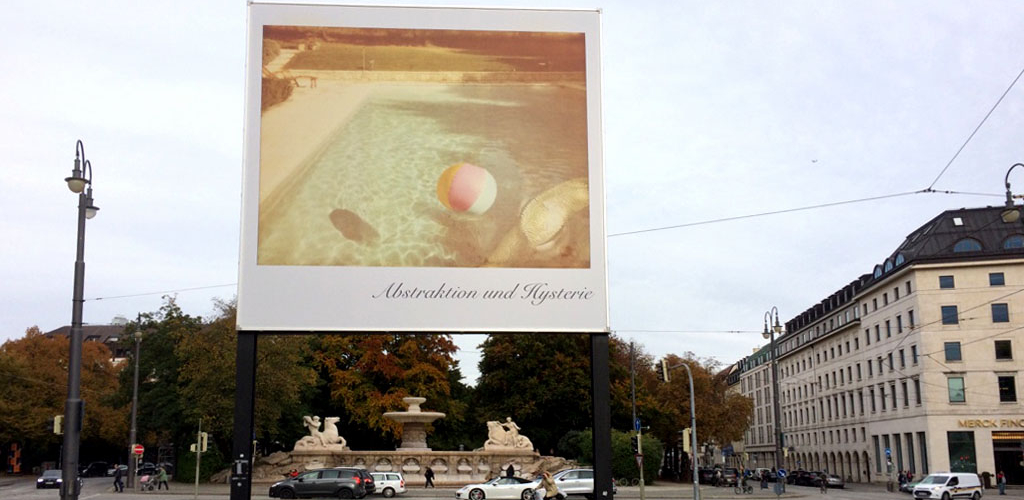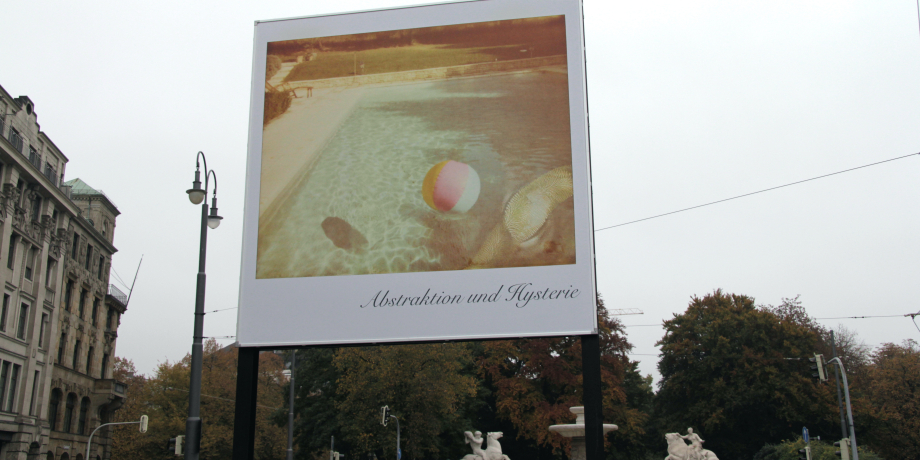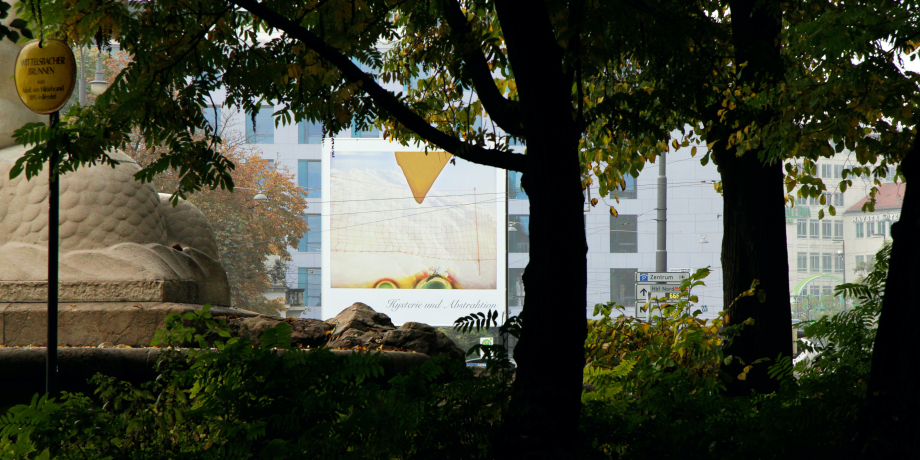Hansjoerg Dobliar has chosen two polaroids, whose square format corresponds to the given display, for the double-sided billboard on Lenbachplatz. The polaroids, with their alienated, faded colours and age-related “flaws” in the surface, are representative of projects he has carried out in Provence, Southern France, and in Davos in the Swiss Alps. On the one hand, Dobliar is intrigued by the places as such, with their artistically appealing landscapes, which are extremely different in terms of climate. On the other hand, the artist is interested in their history, which is closely linked to the artists he admires and to whose works, attitudes or even biographies he sometimes refers. As far as Provence is concerned, Paul Cézanne and Pablo Picasso come to mind. Davos, the Swiss Alps, are associated with the artistic personalities of Giovanni Segantini and Ernst Ludwig Kirchner.
The polaroid medium is in the process of disappearing, but it is experiencing a renaissance among specialists and is still – or again – in the collective memory as a format and in its aesthetics. It is almost square, a very “ideal” format, with its own white frame and a peculiar colourfulness. Dobliar uses old Polaroid films that have been stored for so long that they no longer function properly, creating abstract colour gradients or other disturbances in the actual photograph that the artist cannot influence, but which often change the overall image in such a way that they contribute to and extend his exploration of abstraction, form and colour.
The polaroids, which are very small in the original and are now reversed in size as an urban intervention, show private-looking photographs as large landscapes. In the centre of the city, reference is made to the intimate retreats of artists, which Dobliar has approached geographically and artistically.
Hansjoerg Dobliar, born in 1970 in Ulm, lives and works in Munich.



